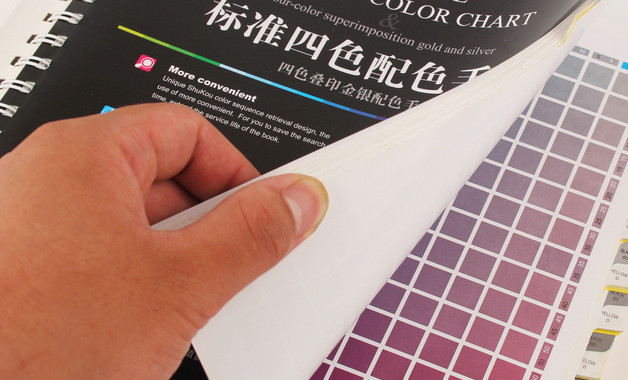- 目录

第1篇 英语三分钟演讲稿:我与祖国
a young idler,an old beggar almost everyone knows the famous chinese saying:a young idler,an old beggar.
throughout history,we have seen many cases in which this saying has again and again proved to be true.
it goes without saying that the youth is the best time of life,during which ones mental and physical states are at their peaks.
it takes relatively less time and pains to learn or accept new things in a world full of changes and rapid developments.
in addition,one is less likely to be under great pressure from career,family and health problems when young.
therefore,a fresh mind plus enormous energy will ensure success in different aspects of life.
of course,we all know:no pains,no gains.
if we dont make every effort to make good use of the advantages youth brings us,it is impossible to achieve any goals.
as students,we should now try our best to learn all the subjects well so that we can be well prepared for the challenges that we will face in the future.
第2篇 我与祖国英语三分钟演讲稿
a young idler,an old beggar almost everyone knows the famous chinese saying:a young idler,an old beggar.
throughout history,we have seen many cases in which this saying has again and again proved to be true.
it goes without saying that the youth is the best time of life,during which ones mental and physical states are at their peaks.
it takes relatively less time and pains to learn or accept new things in a world full of changes and rapid developments.
in addition,one is less likely to be under great pressure from career,family and health problems when young.
therefore,a fresh mind plus enormous energy will ensure success in different aspects of life.
of course,we all know:no pains,no gains.
if we dont make every effort to make good use of the advantages youth brings us,it is impossible to achieve any goals.
as students,we should now try our best to learn all the subjects well so that we can be well prepared for the challenges that we will face in the future.
第3篇 ted英语演讲:我与蚊子的爱恨情仇
why i study the most dangerous animal on earth — mosquitoe
演讲者:fredros okumu
| 中英对照演讲稿 |
i guess because i'm from tanzania i have a responsibility to welcome all of you once again. thank you for coming.
我猜,由于我来自坦桑尼亚我有责任再次欢迎你们,谢谢你们的到来。
so, first of all, before we start, how many of you in the audience have been in the past a victim of this bug here? we apologize on behalf of all the mosquito catchers.
在演讲开始前,首先我想问一下各位在座的朋友是否都受过蚊虫叮咬之苦?我代表所有捕蚊者向大家道歉。
ladies and gentlemen, imagine getting seven infectious mosquito bites every day. that's 2,555 infectious bites every year.when i was in college, i moved to the kilombero river valley in the southeastern part of tanzania. this is historically one of the most malariouszones in the world at that time. life here was difficult. in its later stages malaria manifested with e_treme seizures locally known as degedege. it's killed both women and men, adults and children, without mercy.
女士们,先生们想象一下,如果每天被携带传染源的蚊子叮咬7次那一年就是2555次。我上大学的时候,搬到了坐落于坦桑尼亚南部的基隆贝罗河谷村。在当时,那里是有史以来全世界疟疾的高发区。那儿的生活很艰辛在疟疾晚期它主要表现为极严重的抽搐,当地称为“degedege'无论男女老少都难以幸免。
my home institution, ifakara healthinstitute, began in this valley in the 1950s to address priority health needsfor the local communities. in fact, the name ifakara refers to a place you go to die, which is a reflection of what life used to be here in the days before organized public health care. when i first moved here, my primary role was toestimate how much malaria transmission was going on across the villages and which mosquitoes were transmitting the disease.
我家乡的研究机构,‘ifakara研究所‘于上世纪50年代在这个村庄成立为当地社区提供重要的健康保障。实际上,ifakara的意思是人死时会去的地方它反映了没有公共医疗保障之前当地的生活状况。当我第一次搬到这里来的时候我主要的工作就是去估计在这个村子里有多少疟疾传播的案例并找出是哪种蚊子在传播疾病。
so my colleague and myself came 30 kilometers south of ifakara town across the river. every evening we went into the villages with flashlights and siphons. we rolled up our trousers, and waited for mosquitoes that were coming to bite us so we could collect them to check if they were carrying malaria.
为此,我和同事来到跨过河30公里以外的ifakara镇以南。每晚我们都带着手电筒和虹吸管去村子里我们卷起裤管等着蚊子来叮咬我们因此,我们可以收集它们检查它们是否携带疟疾病毒。
my colleague and myself selected ahousehold, and we started inside and outside, swapping positions every half hour. and we did this for 12 hours every night for 24 consecutive nights. we slept for four hours every morning and worked the rest of the day, sorting mosquitoes, identifying them and chopping off their heads so they could be analyzed in the lab to check if they were carrying malaria parasites in their blood mouthparts. this way we were able to not only know how much malaria was going on here but also which mosquitoes were carrying this malaria. we were also able to know whether malaria was mostly inside houses or outside houses.
我和同事选了一户人家然后我们开始屋里屋外站岗,每隔半小时换一班,每晚值班12个小时,连续干了24个晚上。我们每天早上睡4个小时其余时间都一直工作我们将收集到的蚊子分类,辨认它们并切下它们的头这样它们就可以被送到实验室里去分析了看它们带血的口器里是否携带疟原虫。这样,我们不仅知道有多少例疟疾发生也知道是哪种蚊子携带疟疾源我们还可以知道疟疾是常在屋内感染还是在屋外。
today, ladies and gentlemen, i still catch mosquitoes for a living. but i do this mostly to improve people's lives and well-being. this has been called by some people the most dangerous animal on earth -- which unfortunately is true. but what do we really know about mosquitoes? it turns out we actually know very little.
女士们,先生们,如今我还是靠捕蚊为生但主要是为了延长人们的寿命,改善他们的生活。有些人说,这是世界上最危险的动物不幸的事,事实确实如此但是我们又对蚊子了解多少呢?结果表明,我们对蚊子了解甚微。
consider the fact that at the moment our best practice against malaria are bednets -- insecticide treated bednets. we know now that across africa you have widespread resistance to insecticides. and these are the same insecticides, the pyrethroid class,that are put on these bednets. we know now that these bednets protect you from bites but only minimally kill the mosquitoes that they should. what it means is that we've got to do more to be able to get to zero. and that's part of our duty.
事实是我们现在对抗蚊子最实际的做法是蚊帐-涂有驱蚊剂的蚊帐我们得知,在整个非洲普遍存在杀虫剂抵抗现象蚊帐用的就是这种杀虫剂除虫菊素类杀虫剂,它们被用在蚊帐上我们现在知道,蚊帐能保护我们不受叮咬,但是杀蚊效果很差,不尽人意。这意味着,我们还要采取更多措施才能把蚊虫消灭干净。而这也是我们的职责。
at ifakara health institute we focus verymuch on the biology of the mosquito, and we try to do this so we can identify new opportunities. a new approach. new ways to try and get new options that we can use together with things such as bednets to be able to get to zero. and i'm going to share with you a few e_amples of the things that my colleagues and myself do.
在ifakara健康研究机构我们主要研究蚊子的生物学特性以便寻找新的机会发现新的途径新的方法,来寻找其他灭蚊方式与蚊帐等传统手段结合一同将蚊子消灭干净。我要给你看我和我同事做的新的东西。
take this, for e_ample. mosquitoes breed in small pools of water. not all of them are easy to find -- they can be scattered across villages, they can be as small as hoofprints. they can be behind yourhouse or far from your house. and so, if you wanted to control mosquito larvae,it can actually be quite difficult to get them. what my colleagues and i have decided to do is to think about what if we used mosquitoes themselves to carry the insecticides from a place of our choice to their own breeding habitats so that whichever eggs they lay there shall not survive.
比如说这个,蚊子在小水洼里繁殖并不是所有的蚊子都容易发现有的散布在村子各处有的像蹄印一样小有的就在你家后院,有的却离你房子很远。因此要想控制住蚊子卵也是很困难的。我和我的同事决定要做的是想让蚊子自己将杀蚊剂从我们指定的地点带到它们繁殖的栖息地消灭那个地方所有的蚊卵。
this is dickson lwetoijera. this is my colleague who runs this show at ifakara. and he has demonstrated cleverly that you can actually get mosquitoes to come to the place where they normally come to get blood to pick up a dose of sterilants or insecticide, carry this back to their own breeding habitat and kill all their progeny. and we have demonstrated that you can do this and crush populations very, very rapidly. this is beautiful.
这是狄更斯·维托杰亚我的同事,在ifakara展示这一试验他聪明的验证了可以让蚊子从它常去采血的地方采到带有杀菌剂或者杀虫剂的血液然后把它们带到它们的繁殖地杀掉它们所有的虫卵。并且,我们可以证实你可以做到并很快的减少蚊子的数量这太美了。
this is our mosquito city. it is the largest mosquito farm available in the world for malaria research. here we have large-scale self-sustaining colonies of malaria mosquitoes that we rear in these facilities. of course, they are disease-free. but what these systems allow usto do is to introduce new tools and test them immediately, very quickly, and see if we can crush these populations or control them in some way. and my colleagues have demonstrated that if you just put two or three positions where mosquitoes can go pick up these lethal substances, we can crush these coloniesin just three months. that's auto dissemination, as we call it.
这是我们的蚊子城市。这是全世界最大的蚊子养殖基地用于支持对疟疾的研究。在这个基地里,我们养了一大批自给自足的疟疾蚊子群体。当然,它们是不携带任何疾病的这些系统使我们可以引进新技术并立即投入试验非常快并看看我们是否能消灭蚊子种群或者设法控制它们我的同事也证明了只需在两三个地方投放致命物质让蚊子去采集,我们就可以将蚊群在三个月内消灭干净。我们称它为:自动化播散。
but what if we could use the mosquitoes'se_ual behavior to also control them? so, first of all i would like to tell you that actually mosquitoes mate in what we call swarms. male mosquitoes usually congregate in clusters around the horizon, usually after sunset. the males go there for a dance, the females fly into that dance and select a male mosquito of their choice, usually the best-looking male in their view.
但是我们是否可以利用蚊子的性行为来控制它们?首先,我想跟你们说的是蚊子其实是聚众交配的,公蚊子通常成群结队的聚集在地表面,太阳落山后公蚊子去那里跳舞母蚊子也过去跳舞,并挑选一个她们看上的公蚊子,——通常是那个看起来最英俊的。
they clump together and fall down onto the floor. if you watch this, it's beautiful. it'sa fantastic phenomenon. this is where our mosquito-catching work gets really interesting. what we have seen, when we go swarm hunting in the villages, isthat these swarm locations tend to be at e_actly the same location every day,every week, every month, year in, year out. they start at e_actly the same time of the evening, and they are at e_actly the same locations.
它们聚集在一起,然后落到地上你要看到这景象,你也会认为很美。这真是一个太棒的现象了这就是我们捕蚊工作的好玩之处当我们到村里的沼泽去捕蚊子的时候会发现,这些沼泽地总是固定不动的每天,每周,每个月年复一年。它们每晚都在相同的时间开始交配,它们也去相同的地点。
what does this tell us? it means that if we can map all these locations across villages, we could actually crush these populations by just a single blow. kind of, you know,bomb-spray them or nuke them out. and that is what we try to do with young menand women across the villages. we organize these crews, teach them how to identify the swarms, and spray them out. my colleagues and i believe we have a new window to get mosquitoes out of the valley.
这给我们有什么启发呢?这就意味着,如果我们可以在村子里找到这些地点我们就能把这些蚊子一网打尽。就像,用炸弹覆盖或者核武器一样消灭它们那就是我们和青年男女在村子里尝试做的事我们把这帮人组织起来,教他们如何去辨认蚊群并喷洒药物杀死它们。我和我的同事相信我们有新的机会将蚊子赶出村子。
but perhaps the fact that mosquitoes eat blood, human blood, is the reason they are the most dangerous animal on earth.but think about it this way -- mosquitoes actually smell you. and they have developed incredible sensory organs. they can smell from as far sometimes as100 meters away. and when they get closer, they can even tell the difference between two family members.
但是事实是,这些蚊子吸血,吸人类的血这就是为什么他们是世上最危险的动物但是,请这样想-蚊子实际上是闻到了你的气味而它们进化出了不可思议的感觉器官它们可以闻到100米开外的气味它们离你很近的时候连一家的两个不同成员都能区分出来。
they know who you are based on what you produce from your breath, skin, sweat and body odor. what we have done at ifakara is to identify what it is in your skin, your body, your sweat or your breath that these mosquitoes like. once we identified these substances, we created aconcoction, kind of a mi_ture, a blend of synthetic substances that are reminiscent of what you produce from your body. and we made a synthetic blend that was attracting three to five times more mosquitoes than a human being.
它们通过你呼出的气体,皮肤分泌物,汗液,体味就能知道你是谁。我们在ifakara做的是去鉴别来自你皮肤,你身体,汗液和呼吸中那些蚊子喜欢的东西。一旦我们找到这种物质,我们就可以做一种混合剂一种合成物质接近人类的体味。我们做了一个合成的混合物它吸引蚊子数量是人类能够吸引的3-5倍。
what can you do with this? you put in a trap, lure a lot of mosquitoes and you kill them, right? and of course, you can also use it for surveillance. atifakara we wish to e_pand our knowledge on the biology of the mosquito; to control many other diseases, including, of course, the malaria, but also those other diseases that mosquitoes transmit like dengue, chikungunya and zikavirus.
你可以用这个做什么?你埋下陷阱,吸引大批的蚊子,然后再杀死它们,对吧?当然,它还可以起到监视作用在ifakara我们希望可以拓展我们在蚊子的生物学方面的知识去控制其它的疾病,当然包括疟疾在内还有通过蚊子传播的其他疾病诸如登革热,奇昆古尼亚热病和寨卡病毒。
and this is why my colleagues, for e_ample -- we have looked at the fact that some mosquitoes like to bite you on the leg region. and we've now created these mosquito repellent sandals that tourists and locals can wear when they'recoming. and you don't get bitten -- this gives you 'round the clock protection until the time you go under your bednet.
这也是为什么我的同事,比方说我们发现某些蚊子喜欢叮你的大腿。我们为此也发明了驱蚊凉鞋保护游人和当地人免遭蚊虫叮咬因为这会给你随时随地的保护直到你回到你的蚊帐里去。
my love-hate relationship with mosquitoes continues.
我与蚊子的爱恨情仇还在继续。
and it's going to go a long way, i can see.but that's ok. who has set a goal of 2030 to eliminate malaria from 35countries. the african union has set a goal of 2030 to eliminate malaria from the continent. at ifakara we are firmly behind these goals. and we've put together a cohort of young scientists, male and female, who are champions, who are interested in coming together to make this vision come true. they do what they can to make it work. and we are supporting them. we are here to make sure that these dreams come true.
我也知道灭蚊之路仍然任重道远。但是,这也不错。世卫组织定了一个目标,在2030年消灭35个国家的疟疾。非洲联合国家也定了个目标在2030年将消灭非洲大陆的疟疾。在ifakara,我们紧随目标我们集合了一大批青年科学家男女都有他们是胜利者愿意聚集在一起实现目标。他们尽其所能去实现目标。而我们在支持他们。我们来到这就是为了使这个梦想成真。
ladies and gentlemen, even if it doesn't happen in our lifetime, even if it doesn't happen before you and me go away, i believe that your child and my child shall inherit a world free of malaria transmitting mosquitoes and free of malaria. thank you very much, ladies and gentlemen.thank you.
女士们,先生们即便这一梦想没有在我们有生之年起作用我相信你的孩子,我的孩子、也会享受一个没有传播疟疾的蚊子也没有疟疾的世界。女士们,先生们。非常感谢。
kelo kubu: ok, fredros. let's talk about crispr for a bit.
凯勒·库巴:好的,费兰德我们来聊点儿crispr吧
it's taken the world by storm, it promises to do amazing things. what do you think of scientists using crispr to kill off mosquitoes?
这让整个世界很是震撼它预示着能够做很多不可思议的事情,你怎么看科学家用crispr消灭蚊子。
fredros okumu: to answer this question,let's start from what the problem is. first of all, we're talking about a disease that still kills -- according to the latest figures we have from who -- 429,000 people. most of these are african children. of course, we've made progress,there are countries that have achieved up to 50-60 percent reduction in malaria burden. but we still have to do more to get to zero. there is already proof of principle that gene-editing techniques, such as crispr, can be used effectively to transform mosquitoes so that either they do not transmit malaria -- we call this population alteration -- or that they no longer e_ist, population suppression. this is already proven in the lab.
费兰德:要回答这个问题,我们就得先说一下问题的实质首先,我们讲的是一个可以致人死亡的疾病据世贸卫生组织最新数字表明已有429,000人因此而死亡多数是非洲儿童当然,我们还是有成效的有些国家已经减少了50-60%的疟疾死亡率但是要达到零死亡,还需要时间已经有证据表明基因编辑技术,比如crispr可以有效的用来改造蚊子,是他们不再传播疟疾我们称它为人口替换抑或是他们根本就不复存在了蚊子数量骤减这些已经通过实验证实了。
there is also modeling work that has demonstrated that even if you were to release just a small number of these genetically modified mosquitoes, that you can actually achieve eliminationvery, very quickly. so, crispr and tools like this offer us some real opportunities -- real-life opportunities to have high-impact interventions that we can use in addition to what we have now to eventually go to zero. this is important.now, of course people always ask us -- which is a common question, i guess you're going to ask this as well -- 'what happens if you eliminate mosquitoes?'
有一个样板课题已经证明了即使你去释放少量这种经基因改造后的蚊子就可以让你快速将蚊子消灭光。因此,crispr和类似的工具提供给我们真正的机会-存在于现实生活中的高效能干扰机会可以供我们使用来增强我们现在所有的直到最后直到完全消灭这很重要现在,当然很多人都在问我们这也是一个很普遍的问题我猜想你也会这样问“你们把所有的蚊子都消灭了又怎样?”
kk: i won't ask then, you answer.
凯:那我就不问了,你回答吧
fo: ok. in respect to this, i would just like to remind my colleagues that we have 3,500 mosquito species in this world.maybe more than that. about 400 of these are anophelenes, and only about 70 of them have any capacity to transmit malaria. in africa, we're having to deal with three or four of these as the major guys. they carry most -- like 99 percent of all the malaria we have. if we were to go out with gene editing like crispr, if we were to go out with gene drives to control malaria, we would be going after only one or two.
费兰德:好的,鉴于这问题,我需要提醒我的同事告诉他们,在这世上有3500种蚊子或许比这还多。这其中400种是按蚊它们当中的70是有能力传播疟疾的。在非洲我们要去处理大概3到4个这种大家伙它们能够携带我们所拥有的99%的疟疾。如果我们要利用像crispr基因改造系统,如果我们要利用基因去控制疟疾,我们就只需要控制一两种。
i don't see a diversity problem with that. but that's personal view. i think it's ok. and remember, by the way, all these years we've been trying to eliminate these mosquitoes effectively by sprayingthem -- our colleagues in america have sprayed with -- really bomb-spraying these insects out of the villages. in africa we do a lot of house hold spraying.all these are aimed solely at killing the mosquitoes. so there's really noproblem if we had a new tool.
我不认为这有什么多元化的问题。但是那仅是我的观点我认为这很好要记住,还有,在这些年来我们一直在尝试去有效率的通过喷雾来消灭它们-我在美国的同事用炸弹喷雾工具来消灭将整个村子里的虫子在非洲,我们用了很多家用喷蚊子的方法所有这些都仅仅只能够杀灭蚊子因此我们再发明个新工具也是没问题的。
but having said that, i have to say we also have to be very, very responsible here. so there's the regulatory side, and we have to partner with our regulators and make sure that everything that we do is done correctly, is done responsibly and that we also have to do independ entrisk assessments, to just make sure that all these processes do not fall into the wrong hands. thank you very much.
虽然我那样说,但是我还是不得不说我也该越来越负责的说但是,我们也有监管的,我们要与我们的监管人合作要确保我们做的所有事都正确,都做的很负责任我们还要去做独立的风险测定仅仅为了确保整个过程万无一失。十分感谢
kk: thank you.(applause)
谢谢(掌声)









